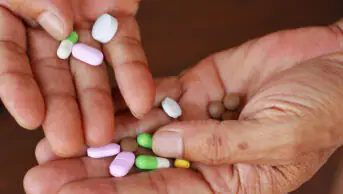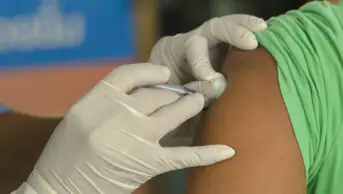
Shutterstock.com
One of my university lecturers described a tendency towards introversion or extroversion as the main difference between pharmacists and doctors. “Both are well educated and keen to help people, but there’s a reason you guys choose to hide behind a counter,” he said. In keeping with our introvert nature, “we guys” — all pharmacists in the making — protested in silence at this outrageous generalisation.
Of course, it is wrong to suggest that all doctors are extroverts and all pharmacists are introverts. However, when it comes to establishing a presence in the media, pharmacy professionals are a long way behind their medical colleagues. Could a general tendency to shun the limelight be holding pharmacists back? And, crucially, what can be done about it?
“Pharmacy is too often not part of the local or national media conversation on key healthcare issues,” says Stephen Fishwick, head of communications for the National Pharmacy Association (NPA), the trade association for independent community pharmacy in the UK. “To a degree, this is down to a certain coyness within the pharmacy profession — a reticence to engage with the media. Pharmacists should not be so bashful about the support they provide day in and day out. In fact, it is necessary to be loud and proud in order to be heard above the noise of everyday news, current affairs and trivia.”

Source: National Pharmacy Association (NPA)
Stephen Fishwick, head of communications for the National Pharmacy Association, says, ”Pharmacists should not be so bashful about the support they provide day in and day out. In fact, it is necessary to be loud and proud in order to be heard above the noise of everyday news, current affairs and trivia.”
“In media terms, pharmacists are inherently interesting because they have knowledge that most people do not have, yet is important to them.”
Pharmacy’s apparent tendency to shy away is not a new phenomenon, but a stepwise change has already begun. In 2010, when the Royal Pharmaceutical Society (RPS) separated from its regulatory department (which became the General Pharmaceutical Council), a new breed of pharmacist — one with media training — began to emerge.
Broadcasters and journalists were keen to know people with expertise in medicines, who were accessible when needed
“At the time, the feedback we were getting from the profession was that pharmacists were rarely visible in the media when issues relating to medicines were discussed,” explains Neal Patel, head of corporate communications for the RPS. “Subsequently, we met with broadcasters and journalists to find out what was needed to give pharmacy a greater media presence. They were keen to know people with expertise relating to medicines, who were accessible when they needed them. So we monitored the medicine-related stories that were being published and reached out to the profession to identify experts in these areas. Many volunteers came forward, so we offered media training to those members who wanted it.”
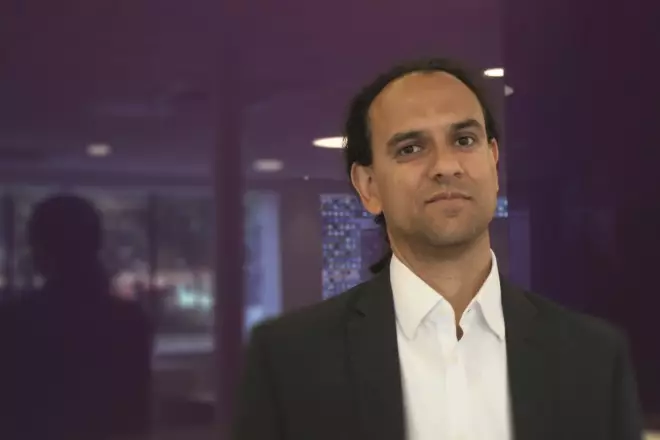
Source: MAG / The Pharmaceutical Journal
Neal Patel, head of corporate communications for the Royal Pharmaceutical Society, says, “Media training is about building confidence, making people aware of what the media needs and offering an understanding on what being in a broadcast or journalist interview is like.”
Working in a media role
Steve Tomlin, consultant pharmacist at Evelina London Children’s Hospital, was one of those who accepted the RPS’s offer of media training. He has since participated in TV and radio interviews, and received many requests from the print media for written quotes, and says that media training is one of the most useful things he has ever done. “The media’s job is to entertain and stimulate the general public. This is important to remember because, even if you’re commenting on a serious issue, you need to make it sound interesting to grab the public’s attention.”
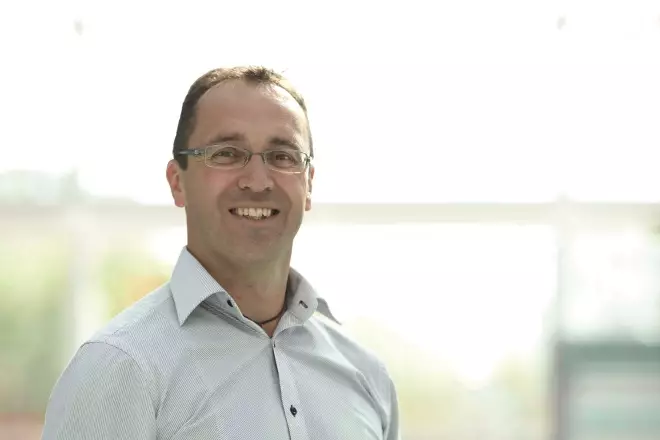
Source: Courtesy of Steve Tomlin
Steve Tomlin, consultant pharmacist at Evelina London Children’s Hospital, was one of those who accepted the Royal Pharmaceutical Society’s offer of media training, which enabled him to give direction to the discussions he had. “Without that direction, you can get yourself into problems,” he says.
“It’s also important to make sure your message is understandable to the general public and is made succinctly to prevent people from losing interest. Dealing with the press is an art form and the training has enabled me to give direction to the discussions I’ve had. Without that direction, you can get yourself into problems.” This approach of making a point clearly and concisely has helped him with subsequent discussions with royal colleges and politicians, he adds.
I get involved with a opportunities from ad hoc queries for an expert’s view on pharmacy topics to big, proactive consumer campaigns
Larger pharmacy chains may choose to train their own staff to help deal with media queries and campaigns. Angela Chalmers works for Boots UK in a role that developed while she was pharmacy manager at the company’s Oxford Street store in London. “I get involved with a wide range of opportunities, from ad hoc queries for an expert’s view on a certain pharmacy topic to supporting big, proactive consumer campaigns,” she says.
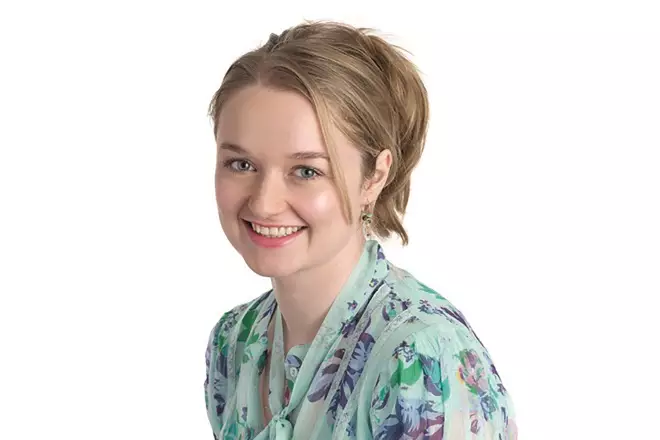
Source: Courtesy of Angela Chalmers
Angela Chalmers, community and media pharmacist at Boots UK, continues to work in frontline pharmacy alongside her media role, and believes that this is essential as “practice, experience and patient consultations bring additional insight to PR campaigns”.
For Chalmers, continuing to work in frontline pharmacy alongside her media role is essential because “practice, experience and patient consultations bring additional insight to PR campaigns”. However, it can also be challenging because journalists always have imminent deadlines and, she says, it can be difficult to fit ad hoc requests into the working day.
“This role offers many opportunities in return, though,” she adds, “including taking part in filming, live webchats, radio days, press shows, talking to journalists, and being involved in government or Department of Health meetings.” It also provides ample scope for continuous professional development. “I’m always having to research and look up new topics. I also learn more about new products or medicines coming to market.”
Highlights of media work
Chalmers recently interviewed Olympic medal-winning cyclist Laura Kenny for TV and radio, the aim of which was to encourage pregnant women to speak to their pharmacist about hay fever because their symptoms may worsen during pregnancy. However, she describes her appearance on a Channel 4 News debate about vitamins as the highlight of her media career. “I was sat alongside a nutritionist and we were both able to give a sensible, informed explanation of how some vitamins have a place in treating deficiencies. The presenter was trying his hardest to incite a heated debate between us, but we kept our cool with our united opinions on vitamins.
The interview began with me putting across my professional views, but then I started to talk about my own experiences with my children
“This was a success for community pharmacy as we were able to highlight our role as a trusted source of healthcare advice, and it was important that customers watching felt reassured and confident.”
Tomlin recalls an interview about the use of paracetamol in children as being one of his most rewarding. “The interview began with me putting across my professional views, but then I started to talk about my own experiences with my children,” he says. “The interviewer responded to this and the discussion ended up being almost like a general chat. I think the best interviews are conducted in this way.”
Engaging with local media
According to Fishwick, “We need to grow media capacity at grassroots, so that positive coverage can be generated constantly and media opportunities can be taken locally as and when they arise.” For example, if you are offering a new service or have done some innovative work that you feel warrants media publicity, see ‘Box 1: What is “news”?’, for advice on how to go about this.
Box 1: What is “news”?
Giving insight into the mind of an editor, Elizabeth Sukkar, former deputy news editor of The Pharmaceutical Journal, offers this advice to anyone who has a story to share with the pharmacy profession:
“At The
Pharmaceutical
Journal we seek stories that will have an impact on the working lives of pharmacists. This could include new safety issues around a drug, how a national service has performed, or new regulatory and political issues that affect the pharmacy environment.
“Send a compelling, well-written press release (or email) and follow it up with a phone call. We receive many press releases and, if you are tenacious, we will listen to your pitch.
“Sometimes, we receive amazing pharmacy research studies but they come to us quite late. If you want a news item about your study, send us an embargoed press release and the study itself, so we can consider it.
“That said, the news pages on our website or in the print journal are not the only ways you can engage with us. We could interview you for a ‘Q&A’ if you have something new and really interesting to say. Also, if you are looking to publish your research in a peer-reviewed journal, consider Clinical Pharmacist or other RPS-owned publications, including the International Journal of Pharmacy Practice (IJPP), which both accept research article submissions.
“Ultimately, be confident and pitch your story directly to us, and be sure to tell us why it is important that the topic be covered.”
Patel advises pharmacists to be completely clear about what they want to say before they speak to a journalist or broadcaster. “Test your idea with friends and family, particularly those who have no links with pharmacy, to establish whether they find it interesting. Then look at broadcasting or publication schedules and give the station or publication a call.
Be completely clear about what you want to say before you speak to a journalist or broadcaster
“Alternatively, you could invite them to come and see what you are doing. That said, don’t be disappointed or disheartened if you don’t get a positive response the first time.”
Chalmers adds: “Talking to the media can be daunting but pretend that you are speaking to your customers. I always find this helps me stay calm and get the right message out there.”
Media training and opportunities
According to Patel, media training is not essential for speaking to the media but offers many benefits. “In the main, the training is about building confidence, making people aware of what the media needs and offering an understanding on what being in a broadcast or journalist interview is like. It doesn’t need to be extensive — most aspects can be covered in a relatively short period of time. The key is that we would put people forward for interview only if they are happy and ready to do so.”
Patel confirmed that the RPS is considering offering online media training and anticipates this may become available to members later in 2017. In the meantime, he and his team are happy to offer support to any member who has received a query from the media.
You need to make sure that your answer represents pharmacy as a whole and does not breach rules on promotion, such as mentioning brand names
The NPA plans to launch a similar offering. Fishwick says that its members will also be able to access free media training — this started with a webinar entitled ’Managing the Media – practical training for pharmacists’— and is happy to help members with media-related enquiries. Notably, he has received an increasing number of queries about dealing with false or inflated allegations on social media. “Generally speaking, it is inadvisable to respond directly via social media to such accusations made in this way,” he says. “Instead, we encourage our members to find other ways to counter the claims and reinforce their positive reputation in the community.”
Chalmers adds: “I spent time at the [Boots UK] pharmacy superintendent’s office to really understand the professional and ethical duties involved in having a media-facing role, and I still work closely with the pharmacy and legal team on all media opportunities. Some of the questions that you are asked can be difficult to respond to, as you need to make sure that your answer represents pharmacy as a whole and does not breach any rules around promotion, for example, not mentioning brand names.”
Tomlin recommends media training to anyone acting as a spokesperson. “One of the best ways to increase your profile, particularly outside pharmacy, is to have a media presence. Having a greater influence outside the profession can help you to enact change or get things done.”
Reading this article counts towards your CPD
You can use the following forms to record your learning and action points from this article from Pharmaceutical Journal Publications.
Your CPD module results are stored against your account here at The Pharmaceutical Journal. You must be registered and logged into the site to do this. To review your module results, go to the ‘My Account’ tab and then ‘My CPD’.
Any training, learning or development activities that you undertake for CPD can also be recorded as evidence as part of your RPS Faculty practice-based portfolio when preparing for Faculty membership. To start your RPS Faculty journey today, access the portfolio and tools at www.rpharms.com/Faculty
If your learning was planned in advance, please click:
If your learning was spontaneous, please click:
